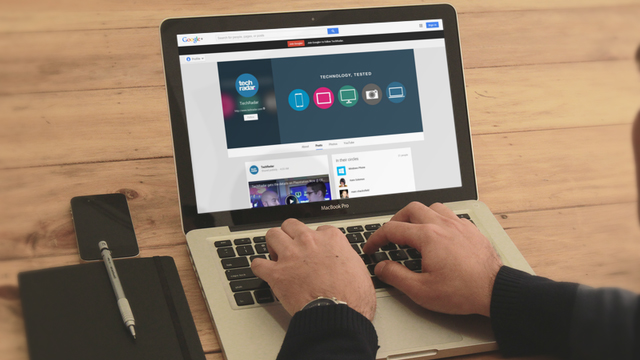Google+: resistance is futile!
Ain't no party like a compulsory Google+ party

This week's attempt to push the poor man's Facebook involves making it really easy for any old stranger to email you.
Yes, Google is enabling anybody with a Google+ account to email you by automatically enrolling you in a scheme apparently designed for spammers and hiding the opt-out in the depths of your email settings.
The senders can't see your email address unless you reply, but given that the whole point of not giving people your email address is to prevent them from getting in touch with you, that's a small consolation. Google says it's all about making life easier, of course, but then Google would say that, wouldn't it?
As with most social networking annoyances, you're opted in by default. If you'd rather not open your inbox to Google+'s several users, you'll need to login to Gmail, click on Settings, and scroll down the General tab until you see the "Email via Google+" drop-down.
For Google, of course, the benefits are obvious. More people contacting you means more connections, and more connections means more data to mine.
Resistance is futile!
Google+'s blurred lines
"Google's solution is simple: if it can't persuade people to use Google+, it'll force them to."
Sign up for breaking news, reviews, opinion, top tech deals, and more.
From the outset, Google+ has faced a pretty big problem: people just don't want to use it.
Sure, Googlers use it, and the odd geek and tech journo uses it. There are cottage industries of photographers and the like, but most ordinary people don't give it the time of day. That's because we're all already on Facebook, Twitter or the new wave of services such as WhatsApp and Snapchat.
Google's solution is simple: if it can't persuade people to use it, it'll force them to.
YouTube comments now require a Google+ account. Picasa became Google+ Photos last year. And now Gmail users get to make unsolicited new Google+ pals if they forget to opt out (or more likely, if they don't know they've been opted in in the first place).
It's the same thing that makes Facebook diddle with the privacy settings from time to time, always ending up with a little more of your stuff becoming a little less private, and it's the same thing that got Google into trouble back in 2011 when it enrolled people into its ill-fated Buzz social network whether they wanted to join or not.
Tech firms are myopic when it comes to privacy. Because they're all hip young codeslingers with fantastic, sun-drenched and entirely innocent lives they tend to assume that everybody else is too, so they'll merrily connect you with everyone you've ever met without imagining any negative consequences.
We saw an example of that this week, where a man was arrested for sending a Google+ invitation to his ex in breach of a restraining order.
The man claims that the invitation was sent accidentally and automatically by Google's auto-invite feature. If his claims are true, the man's the latest victim of a war of attrition, social networks' ongoing attempts to annexe more of our online activities and mine it for fun and profit.
It's a timely reminder that if social networks were restaurants, we wouldn't be the customers. We'd be the ingredients.

Contributor
Writer, broadcaster, musician and kitchen gadget obsessive Carrie Marshall has been writing about tech since 1998, contributing sage advice and odd opinions to all kinds of magazines and websites as well as writing more than twenty books. Her latest, a love letter to music titled Small Town Joy, is on sale now. She is the singer in spectacularly obscure Glaswegian rock band Unquiet Mind.